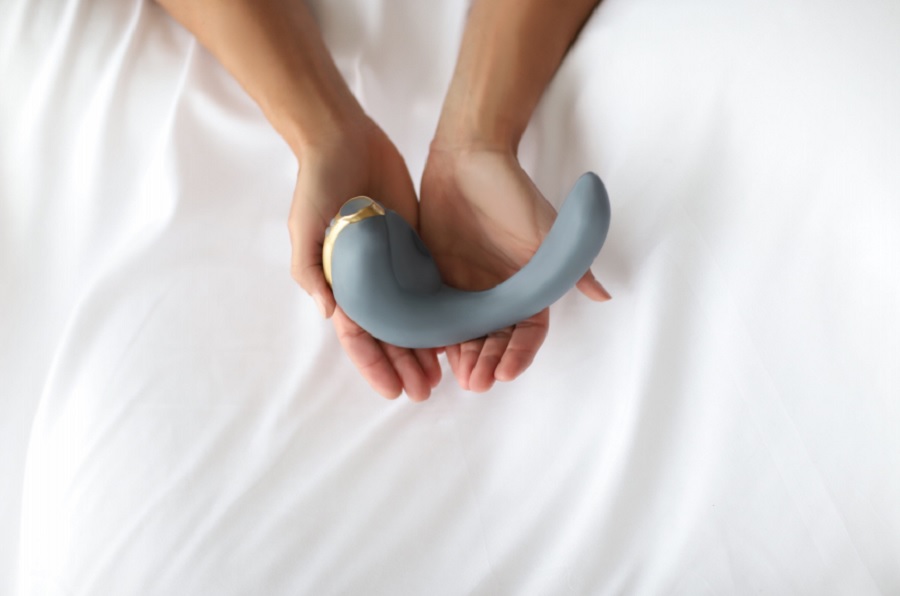The Consumer Technology Association stepped in a mess when it first awarded a CES Innovation Award to sex toy maker Lora DiCarlo at the CES 2019 trade show. Then it took away the award, saying that the award for the female-focused micro-robotic sex toy Osé was inappropriate.
Now the CTA, which stages the CES trade show attended by 180,000 people, has reversed itself again and agreed to give the award back to Lora DiCarlo, which had appealed the decision and called out the organization for gender bias and inconsistency in addressing sex-positive women’s products versus male-oriented devices.
In a press release, the CTA said it recognizes the innovative technology that went into the development of Osé and reiterated its sincere apology to the Lora DiCarlo team.

Above: The Osé sex toy
“CTA is pleased to present Lora DiCarlo with a CES 2019 Innovation Award,” said Jean Foster, CTA’s senior vice president of marketing and communications. “CTA did not handle this award properly. This prompted some important conversations internally and with external advisors and we look forward to taking these learnings to continue to improve the show.”
June 5th: The AI Audit in NYC
Join us next week in NYC to engage with top executive leaders, delving into strategies for auditing AI models to ensure fairness, optimal performance, and ethical compliance across diverse organizations. Secure your attendance for this exclusive invite-only event.
One of the puzzling aspects of the original decision to rescind the award was that sex toys are not banned at CES. The founder of Lora DiCarlo, Lora Haddock, pointed that out in her arguments as the drama played out in early January.
“I am thankful that the CTA has reconsidered our eligibility for this award and validated the innovation our engineering team is responsible for,” said Haddock, in a statement. “The incredible support and attention we’ve received in the wake of our experience highlights the need for meaningful changes and we are hopeful that our small company can continue to contribute meaningful progress toward making CES inclusive for all.”
CTA said is committed to continue to make CES a more welcoming and inclusive event for all. CTA will share related policy updates in the months leading up to CES 2020, taking place January 7-10, 2020, in Las Vegas.
Back in January, Haddock said in an interview with VentureBeat that when Uccellini (the former name of the company) first approached OSU’s College of Engineering with the proposition for developing this device, there was, of course, some initial skepticism. But after Haddock explained the years of scientific data she had collected, the concept, the need, and the type of female-centric marketing the company would use for such a product, that skepticism vanished.
Furthermore, when the senior male engineering faculty at OSU saw how enthusiastic many of their female engineering students were to work on this project, they realized how positive it could be for the university’s image, Haddock said.
Micro-robotics led the team to biomimicry, or mimicry of human motion. That eliminated the need for vibration. Yes, it’s not really a vibrator — it’s more like a partner moving, said Haddock.
[Update: Lora DiCarlo also announced it raised $2 million in seed funding in a round led by the Oregon Opportunity Zone Limited Partnership].


